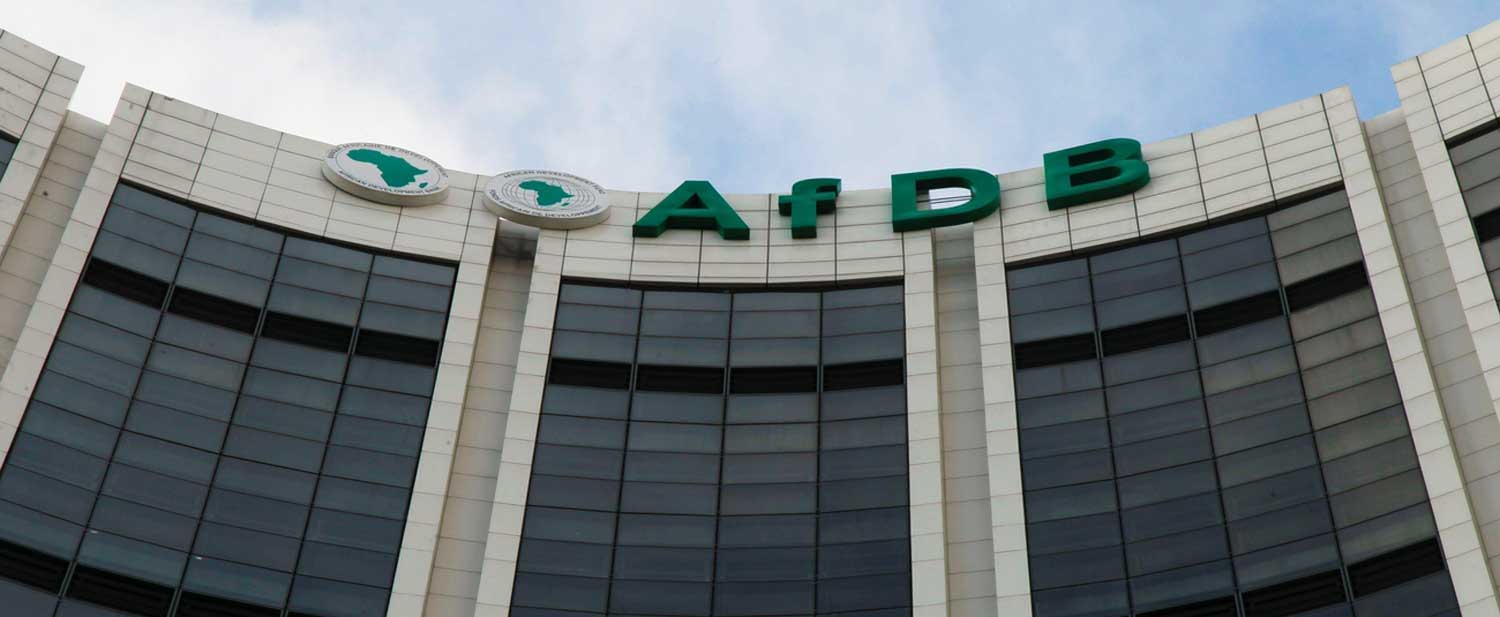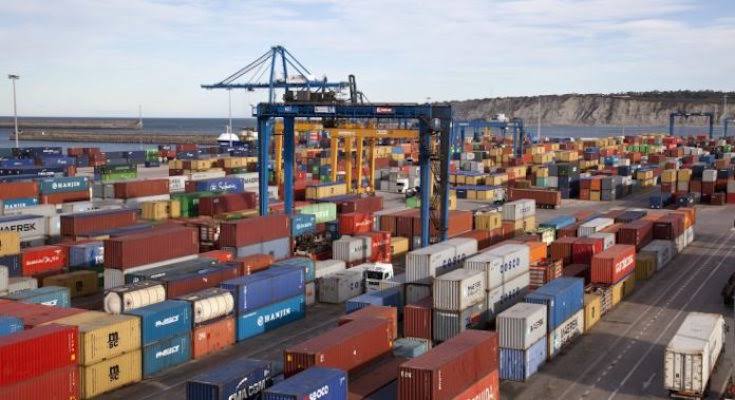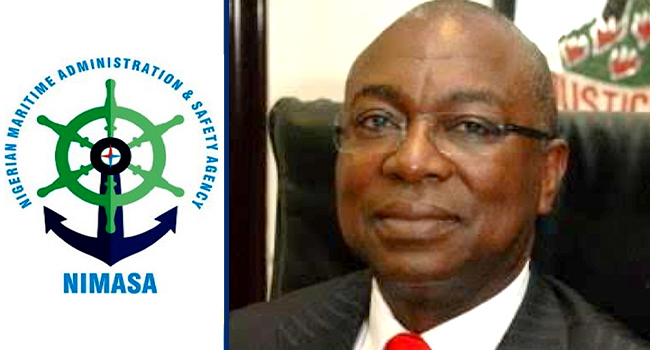Business
Dissenting NGX Shareholders fault resolutions at company’s 61st AGM
A class of shareholders of the NGX Group has frowned at its recently held 61st Annual General Meeting (AGM) and notified the company of its grievances through its lawyers, Messrs S. O. C. Legal represented by its Senior Partner, Oluwaseyilayo Ojo, who has commenced the pre-action protocol to set aside all resolutions at the AGM deemed illegal.
The aggrieved persons are Messrs Olayinka OIajuwon and BamideIe Ibironke, a representative of a class of shareholders of NGX Exchange Group Plc. Their concern was brought to the attention of the Chairman of the NGX Board and its Managing Director, Chief Abimbola Ogunbanjo and Mr. Oscar Onyeama respectively.
The worrying NGX shareholders have stated that the notice of the AGM issued by the company’s Company Secretary/Head of Compliance, Mojisola Adeola was ill-advised, fraudulent and fraught with illegalities and amounts to egregious abuse of privilege by the Board of Directors. They argued that the Notice is contrary to the Companies and Allied Matters Act (CAMA), Investment and Securities Act and other relevant capital market statutes and regulations. They also insisted that the notice and resolutions are contrary to the Board Charter of the company. According to the protesting NGX shareholders, the notice of the 61st AGM should not have been issued in the first place as it offends extant laws and codes of corporate governance and violates shareholder rights.
Messrs Olajuwon and Ibironke argued that the NGX Exchange Group PIc sits at the top of the capital market, and must be held to a higher standard of compliance with law and regulations. It remains a company incorporated under the laws of the Federal Republic of Nigeria. It is definitely not above the law and must be seen to comply with the law.
Some of the resolutions which the NGX 61st AGM sought to achieve, which are being contested by the aggrieved shareholders include, but are not limited to:
(i) To re-elect transitional non-Executive Board members of the Company to roles that have already lapsed under the terms of a Scheme of Arrangement that re-birthed the Company as a Public Limited Company (PLC).
(ii) To raise additional capital for th e Company to the tune of N35, 000,000,000 (Thirty- Five Billion Naira) through a hybrid offering of equity and debt. Specifically, equity of N20 billion and debt of N15 bullion.
( III )To effectively vest upon the Board of Directors far reaching discretional powers and to raise capital in any manner they determine, including by way of a rights issue, public offering or private placement;
(iv) To cancel existing but unissued shares of the Company and effect an amendment of the Company’s memorandum and articles to refer only to the issued shares.
The Notice further provides that attendance at the meeting shalI be by proxy onIy. The reason for this is said to be the COVID-19 guidelines issued by the Federal Government, Lagos State Government and the Corporate Affairs Commission (CAC). Accordingly, members are told to choose proxies out of eight persons selected by the Board of Directors as the onIy eligible proxies from and through whom members must choose, attend and vote.
The dissenting NGX shareholders hold the view that by definition ‘capital’ of a company refers to the total assets of a business or total amount or value of its stock, which in turn is partly a function of a company’s asset worth. It is unthinkable how incurring a debt burden of at N15 billion for the company will translate to raising capital for the company that remains a viable, highly regarded entity in the capital market with unissued shares from which to raise capital.
They further argued that Section 340 of SEC regulations provides among others, that a public company seeking to offer securites by private placement must show evidence of dire need of fresh funds and shall satisfy the commission that the private placement remains the only viable alternative. No evidence has yet been put forward to show compliance with this provision.
According to them, “It is now public knowledge that Directors of the company recently paid themselves whopping sums of money under the guise of allowances and other pecks of the office.”
Business
AfDB to partner Ogun on Special Agro-industrial Processing Zone

By Omobolaji Adekunle, Abeokuta
The African Development Bank (AfDB) has described Ogun State as a powerful ally in its development programmes and project implementation.
The Special Adviser to the President of the Bank on Industrialization, Professor Banji Oyelaran-Oyeyinka, made the assertion in an interview at the weekend, after a meeting with Governor Dapo Abiodun at the Governor’s Office, Oke-Mosan, Abeokuta.
He said the visit was to discuss One Agenda, Item 18, that focuses on the development of the Special Agro Industrial Processing Zone and to clarify the subsidiary loan agreement between the state and the Federal Government.
“Today, we have clarity on how best to develop the hub, including the Agricultural Transformation Centre, to ensure that the significant Zone arrangements see the light of the day,” the AFDB official said.
Also speaking, Commissioner for Agriculture, Mr. Bolu Owotomo said the state stands to gain from having many Agricultural Transformation Centres as they would feed the Special Agro Industrial Processing Zone with raw materials.
He said his ministry was currently distributing inputs to farmers as the farming season approaches to enable them to have bountiful harvest and improve their livelihood.
Owotomo also revealed that capacity building was being intensified by training Extension Officers to enlighten small holder farmers on how best to use the inputs given to them, calling on farmers to follow climate smart farming to plant for good harvest.
In a related development, the Standard Organisation of Nigeria (SON) said it has taken steps to guarantee the safety of trucks conveying Compressed Natural Gas (CNG) in the country.
This is in response to the explosion that occurred in Abeokuta last weekend.
The Director General of the Organisation, Dr. Ifeanyi Chukwunoso Okeke disclosed this on Thursday after a meeting with Governor Abiodun at the Governor’s Office, Oke-Mosan, Abeokuta.
The Director General, who described the incident as unfortunate, said CNG remains a clean and cheapest fuel that is environmentally friendly and an alternative to other traditional petroleum products.
He said, “I am here in respect to the incident that occurred last Saturday. I am here to let the governor know that we now have safety standards that relate to the CNG operations, which President Bola Tinubu will launch on May 29 this year. As you all know, the President has directed that vehicles will now run on CNG, and CNG is the alternative to the traditional fuel, and it is environment friendly.
“I am also here to inform the governor that we now have two standards that have also been released and the standards will help us in ensuring that there is safety in the operations of CNG in the country.”
While sympathising with the family who lost their loved one and those who lost their means of livelihood, Dr. Okeke said his agency would look into the immediate and remote cause of the accident with a view to proffering a solution.
He noted that the federal government was committed to the use of the Compressed Natural Gas as an alternative to drive the country’s economy.
“It is a one off incident and we are going to look at what led to it and come up with measures to ensure that going forward, the CNG operations will be safe for all and ensure that the public is confident in its use,” he said.
Business
Shippers’ Council to clear 616 containers from Lagos ports


By Seun Ibiyemi
The Nigerian Shippers’ Council (NSC) says it is taking immediate measures to remove 616 long-standing export containers trapped in Lagos ports.
The Executive Secretary, NSC, Mr Pius Akutah, said this when his team visited the APM Terminal Complex in Apapa, Lagos, on Friday.
He expressed concern over the growing number of abandoned export containers due to non-compliance with regulatory guidelines.
Akutah said there were plans to engage stakeholders to address the issue while emphasising the importance of promoting ease of documentation for exporters.
“The council needs to quickly bring the service providers, regulators, government agencies and exporters together on one table to discuss and discover where the problem lies.
“We would also take up issues of awareness creation to sensitise exporters on how to comply with the export procedure.
“NSC will work towards promoting ease of documentation by exporters.
“The council needs to do that very quickly because the present situation is not helping the economy, especially as the government is trying to promote exports to earn scarce dollars,” Akutah said.
Akutah emphasised the need to put a mechanism in place to stop export containers that had not completed the necessary documentation from entering the port to avoid the pilling of overtime cargo.
Earlier, Government Relations Manager at APM Terminals, Kayode Daniel said that 1,940 containers had been in Apapa Port between zero day and 10 days, adding that 1,524 containers had stayed between 11 days and 20 days.
Daniel said that 757 containers had stayed between 21 days and 30 days, while 616 had stayed between 31 days and over two years, noting that this classified them as abandoned export containers.
He said that APM Terminals had been pushing for the evacuation of the trapped export containers and had received a commitment from shipping lines.
According to him, these include Maersk, CMA, CGA and Zim to move about 2,752 export containers out of the port in the next five days.
Daniel said that the inability of some exporters to complete the processes required for export containers to leave the port was creating operational bottlenecks for the terminal operator.
This, he noted, was by way of multiple handling of export containers.
Daniel said that exporters had been complaining of ineffective export procedures.
“The export procedures are not moving fast; not knowing the technicalities of their action or inaction because Customs will not authorise the loading of an export without proper documentation.
“There is an established process that is clearly defined by government agencies, but some exporters are not complying with it strictly,” he added.
The terminal manager, APM Terminals, Mr Steen Knudsen, said that technically, export containers were not supposed to stay within the port terminal for more than seven days, adding that all shipping lines come to Apapa on a weekly frequency.
Knudsen said that the terminal operator could not mandate the shipping line to load the container as it was an arrangement strictly between the exporter, Customs and the shipping line.
According to him, most of these export containers that arrive at the port were ‘good to go’ but it is only when they get to the port that Customs and other authorities will discover some missing elements.
He said that discovering the missing element by officials would enable the shipping line not to load the containers.
Knudsen said that the service providers, Shippers Council, Customs, Nigerian Ports Authority and other players need to work together to improve the export process in Nigerian ports.
Also contributing, the General Manager Legal of APM terminal, Mrs Chinenye Deinde, said there was a need to critically examine the export value chain to identify the source of the problem.
She said that the clearance needed for export was not only regulatory by the government, adding that shippers also need to pay the freight for the shipping line to lift the container.
Deinde said that the business agreement that the exporter enters into with the shipping line made it mandatory for the shipping company to lift the export boxes if only the exporter complies with all the trade guidelines.
Business
NIMASA urges investors to explore economic potentials of North East


By Rauf Oyewole, Bauchi
The Nigeria Maritime Administration and Safety Agency (NIMASA) has wooed private sector players to take advantage of the economic potential of the North East region cutting across fishing, aquaculture, logistics transportation, and tourism.
The Director-General of the Agency, Dr. Dayo Mobereola, while speaking in Bauchi on Sunday during the ongoing North East Trade Fair, explained that the blue economy of the region is yet to be tapped while most of the youth in the region are unemployed which he said is fueling insecurity.
Speaking on a topic, “Harnessing the Blue Economy Potential for Entrepreneurial Development: A Panacea for Youth Restiveness,” Mobereola said that the subject of youth restiveness in Nigeria is alarming particularly in the North East and also across the country. He said that acts of violence, gruesome killings, hostage- taking, cultism, etc are some of the social vices that have characterised the region.
He said, “Youth restiveness in this region has taken political, religious, and economic dimensions, and as future leaders if this frond is not urgently checked it will spell doom for the Nigerian state. The youths of any given state are the engine of development, therefore, a society with educated, disciplined, well focused, and law-abiding youth will be heading for greatness but regrettably, this is not the situation in the region where fear and insecurity has become the order of the day.
“It is imperative that in order to bring this situation under control, there is need to realign entrepreneurial development to reflect the interest of Nigerian youths and also the need for government, organisations, stakeholders, and able individuals to promote and support entrepreneurship, hence in the heart of this are the demands to engage and empower our youth meaningfully.
“The blue economy offers a unique avenue to drive entrepreneurship, wealth creation and job opportunities in the region, paving the way for sustainable economic development and significantly alleviating youth restiveness,” he said.
Also speaking, the President of the Chamber of Commerce and Mining and Agriculture and Industry, Abdul Usman said that the is blessed with agriculture potential and called on major stakeholders to invest in agric. He commended NIMASA for its interest in the entrepreneurship potential of the region.
-
capital market2 years ago
Rt.briscoe, FBNH, Others halts negative performance of stock market
-
Finance3 months ago
Court orders Sen. Victor Umeh to repay N136m bank debt to AMCON
-



 Abuja Update2 months ago
Abuja Update2 months agoUNDP, FG partnership needed to achieve inclusion, equity- Minister
-
Abuja Update1 month ago
Banks drive stock market performance with N147bn gain
-



 Business2 weeks ago
Business2 weeks agoTingo Group unveils Tingo Electric, Tingo Cola drink at Lagos launch
-



 Health3 weeks ago
Health3 weeks agoCapacity training will reduce migration of health workers- NPHCDA
-
News4 months ago
Oil thieves sponsoring malicious media campaign against Navy – Spokesman
-



 Infotech1 month ago
Infotech1 month agoWorld Backup Day: NITDA urges Nigerians to ensure backup of data




